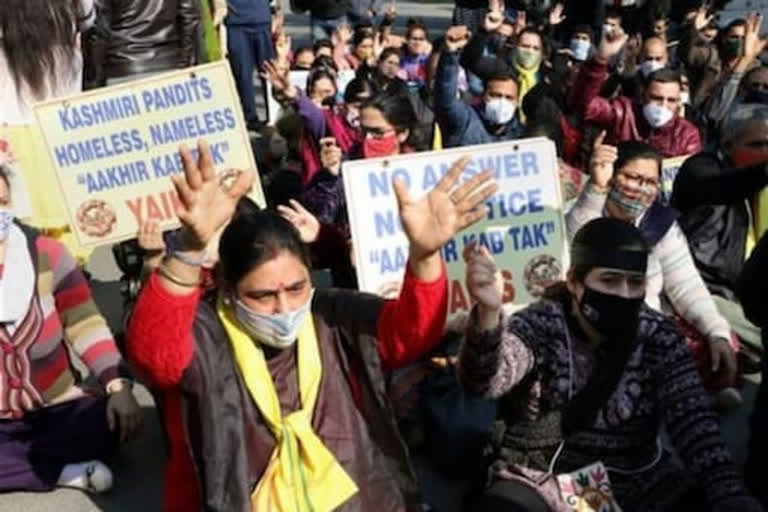Srinagar: The Central government's decision to redefine Assembly constituencies through the delimitation exercise has come under criticism from migrant Kashmiri Pandits who said that excluding them from the delimitation panel is an act of “internal sabotage”. They demanded political representation in the Jammu and Kashmir Assembly.
Kashmiri Pandits, who have been in exile ever since the brutal exodus due to the sudden rise in terrorism and targeted assassination against community leaders since 1990, have sought Prime Minister Narendra Modi's attention over the demand of reservation of seats for the community after the delimitation process in the newly constituted J-K Assembly.
Read:|PDP to boycott Delimitation Commission meet
They expressed anguish over the Central government and Jammu and Kashmir administration of “deliberately neglecting” the community in the constitution of the delimitation panel. They demanded inclusion of at least one representative of the community into the delimitation panel and reservation of two Parliamentary and 10 Assembly seats for them.
Events that led to Kashmiri Pandits exodus
In 1984, Farooq Abdullah’s government in Jammu and Kashmir was toppled by his brother-in-law, Ghulam Mohd. Shah, also known as Gulshah. He then became the chief minister. Contrary to initial beliefs, he supposedly ran a rogue government and started aggressive Islamisation in the Valley.
Major anti-Pandit riots broke out in South Kashmir's Anantnag district in February 1986. Pandits were beaten up, women were raped, several houses and temples were burnt down.
Later, elections were held in 1987 which was allegedly rigged by the Congress and Farooq Abdullah. The 'rigged' elections led to the rise of separatists and worsened the situation. Separatists and anti-India groups were united to contest elections to fulfil their ulterior motives. The Jammu Kashmir Liberation Front (JKLF) became active under Farooq Abdullah’s government leading to religious conflict and communal hatred.
In July 1988, two low-intensity bombs rocked Srinagar and in September 1989, Tika Lal Taploo, who stood for the rights of Pandits was shot dead by armed men outside his residence.
Read:| Delimitation commission to begin J&K visit today, PDP to skip meet
After the resignation of Farooq Abdullah in 1990, President’s rule began in Jammu and Kashmir. There was a lot of political unrest and anti-Hindu movement spearheaded, instigating exodus. In January 1990, massive crowds assembled in mosques across the valley shouting anti-India, anti-pandit community slogans.
In the next few months, hundreds of innocent Pandits were tortured, raped and killed. By the end of the year, about 3,50,000 Pandits had escaped from the Valley and taken refuge in Jammu and Kashmir and elsewhere. Only a few stayed back.
In March 1997, militants dragged out seven Kashmiri Pandits from their houses in Sangrampora village and shot them. Twenty-three Kashmiri Pandits, including women and children, were shot in Wandhama village in January 1998. In March 2003, 24 Kashmiri Pandits, including infants were brutally shot dead in Nadimarg village. In August 2019, the Narendra Modi government abrogated Article 370 and the decision was welcomed by Kashmiri Pandits.



